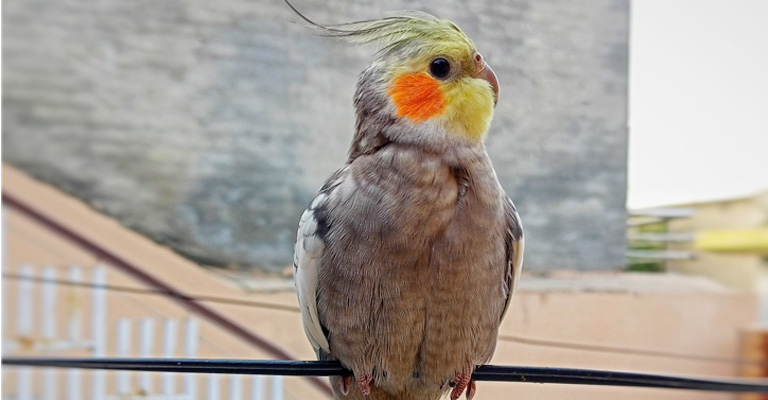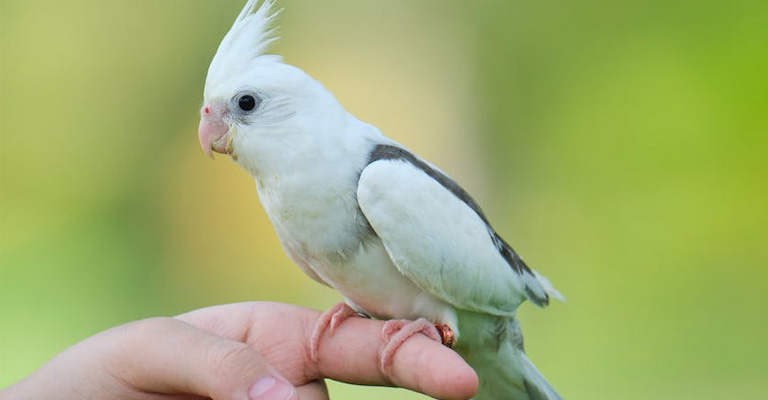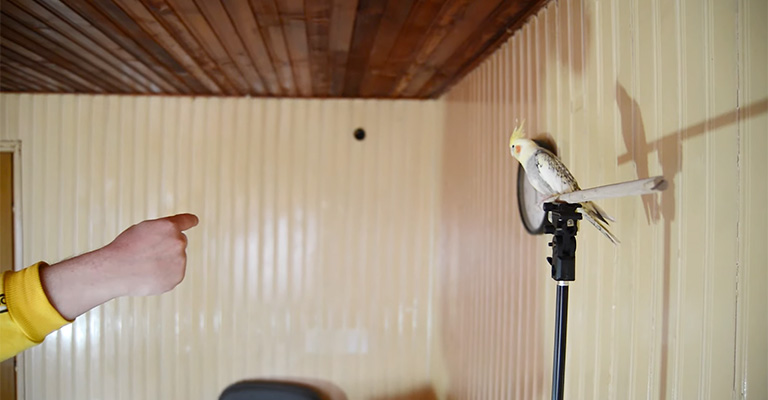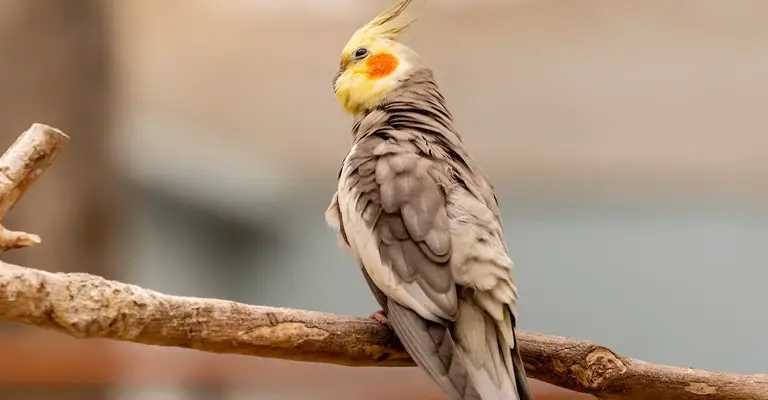Cockatiels are delightful and intelligent companions, but like any pet, they have their preferences and dislikes. To ensure a happy and healthy life for your feathered friend, it’s essential to understand the question ‘What Do Cockatiels Hate- What Should I Do?’.
In this blog post, we’ll explore common dislikes among cockatiels and provide practical tips to help you create a comfortable and stimulating environment for your beloved bird.
From aversion to certain foods to a dislike for solitude, cockatiels have distinct preferences that can impact their well-being. We’ll delve into these dislikes, offering insights into their behaviors and emotions.
By learning what your cockatiel dislikes and taking proactive steps to address these issues, you can build a stronger bond with your pet and provide them with the love and care they need. So stay focused till the end.

Common Things Cockatiels Dislike
Cockatiels are charming birds, but they have specific dislikes to consider:
Loud Noises
Cockatiels are sensitive to loud or sudden noises, which can stress them out.
Solitude
These social birds dislike being alone for extended periods. They thrive on companionship.
Isolation
They don’t like to be confined to their cages all the time. Provide them with opportunities to explore outside their enclosure.
Handling
Some cockatiels may dislike excessive handling, so it’s essential to respect their boundaries.
Sudden Changes
Cockatiels are creatures of habit and can be wary of sudden changes in their environment.
Strong Scents
They are sensitive to strong odors, such as perfumes, cleaning products, or cooking fumes.
Drafts and Cold Temperatures
Cockatiels are susceptible to temperature extremes. They dislike cold drafts and prefer a stable, warm environment.
Can Unfamiliar People Make Cockatiels Stressed?

Yes, unfamiliar people can make cockatiels stressed. Cockatiels are social birds that often form strong bonds with their owners or those they are familiar with. When they encounter strangers or unfamiliar people, they may become anxious, agitated, or fearful.
Cockatiels are known for their cautious nature, and they can perceive unfamiliar individuals as potential threats. They may exhibit signs of stress in the presence of strangers, such as hissing, fluffing up their feathers, or retreating to a safe spot in their cage.
Some cockatiels may even vocalize loudly or display defensive behaviors when confronted with unfamiliar people.
To minimize stress for your pet cockatiel around unfamiliar individuals, it’s essential to introduce them gradually and allow the bird to become accustomed to new faces over time.
Patience, a calm demeanor, and positive reinforcement can help reduce their anxiety and build trust with strangers.
How to Your Cockatiel’s Personality?
To nurture and understand your cockatiel’s personality, follow these steps:
Spend Quality Time
Interact with your cockatiel daily. Spend time talking to, playing with, and simply being around your bird. This helps build trust and familiarity.
Observe Closely
Pay attention to your cockatiel’s behavior. Each bird has a unique personality, and understanding their body language and vocalizations will help you connect with them.
Respect Boundaries
Cockatiels may have preferences for interaction. Some may enjoy cuddling, while others may prefer to perch on your shoulder or explore. Respect their comfort zones.
Positive Reinforcement
Use positive reinforcement techniques when training or interacting. Reward good behavior with treats or praise to encourage desired traits.
Provide Enrichment
Offer toys, puzzles, and activities that cater to your bird’s interests. Cockatiels are curious and enjoy mental stimulation.
Maintain a Routine
Establish a consistent daily routine for feeding, playtime, and sleep. Predictability can reduce stress and help your bird feel secure.
Socialize Your Bird
If possible, introduce your cockatiel to new people and environments gradually to help them adapt and become more sociable.
Healthcare
Regularly visit an avian vet to ensure your cockatiel’s health. Illness can affect their behavior, so prompt medical attention is essential.
Be Patient
Building a strong bond takes time. Be patient and allow your cockatiel to develop trust and express their unique personality at their own pace.
Document and Learn
Keep a journal of your bird’s behaviors and preferences. Over time, you’ll gain valuable insights into their personality and how to provide the best care and companionship.
Remember that cockatiels are individuals, and their personalities can vary greatly. By investing time and effort in understanding and connecting with your pet, you’ll develop a deeper bond and provide a fulfilling environment for your feathered friend.
Training and Socialization of Cockatiels

Training and socialization are crucial for the well-being of cockatiels. Here are some tips on how to train and socialize your pet cockatiel:
Training
- Positive Reinforcement: Use positive reinforcement techniques to encourage desired behaviors. Reward your cockatiel with treats, praise, or affection when they exhibit the behavior you want.
- Clicker Training: Clicker training can be effective with cockatiels. Use a clicker to mark the desired behavior, followed by a reward. This helps your bird associate the click with a reward and understand what you’re asking.
- Short Sessions: Keep training sessions short, around 10-15 minutes, to prevent your bird from becoming bored or frustrated.
- Consistency: Be consistent in your training. Use the same cues and rewards each time to avoid confusion.
- Start with Basic Commands: Begin with simple commands like “step up” or “come here” before moving on to more complex tricks or behaviors.
Socialization
- Handling: Handle your cockatiel gently and regularly to build trust and familiarity. Gradually introduce them to different family members and friends.
- Positive Experiences: Ensure that your bird associates positive experiences with socialization. Offer treats and kind words during and after interactions.
- Playtime: Provide daily playtime outside the cage. This can include supervised exploration of a safe, bird-proofed area or interactive play with toys.
- Exposure to New Situations: Introduce your cockatiel to various environments, sounds, and experiences to help them become more adaptable and less fearful of new things.
- Other Pets: If you have other pets, introduce them to your cockatiel slowly and under supervision to ensure safety.
- Interaction with Other Birds: If you have multiple birds, allow supervised interaction between them to encourage socialization and reduce loneliness.
- Respect Their Limits: Be mindful of your cockatiel’s comfort level. If they show signs of stress or discomfort, give them space and try again later.
- Regular Handling: Continue handling and socializing your cockatiel throughout their life to maintain their social skills and bond with you. Remember that every cockatiel is unique, and some may be more outgoing or sociable than others.
Tips for Keeping Your Cockatiel Happy

Keeping your cockatiel happy requires attention to their physical and emotional needs. Here are some tips to ensure the well-being and happiness of your feathered friend:
Quality Diet
Provide a well-balanced diet consisting of pellets, fresh fruits, vegetables, and small amounts of seeds as treats. Ensure a constant supply of fresh, clean water.
Safe Environment
Create a safe and spacious living environment. Invest in a roomy cage, and bird-proof your home to prevent accidents.
Social Interaction
Spend quality time with your cockatiel daily. They thrive on social interaction, so talk to them, play with them, and include them in your daily activities.
Toys and Enrichment
Offer a variety of toys, including chew toys, puzzle toys, and swings. Rotate toys regularly to keep your bird mentally stimulated.
Natural Light
Ensure your cockatiel gets exposure to natural sunlight or provide full-spectrum lighting to support their physical and psychological health.
Regular Out-of-Cage Time
Allow your cockatiel to stretch their wings and explore outside their cage daily. Provide a safe, bird-proofed area for them to play and exercise.
Grooming
Maintain your bird’s feathers by providing opportunities for bathing, such as a shallow dish of water or a spray bottle for misting.
Quiet and Comfort
Offer a quiet and comfortable sleeping environment. Cover the cage at night to provide darkness and reduce disturbances.
Routine Healthcare
Schedule regular check-ups with an avian veterinarian to monitor your bird’s health and address any medical concerns promptly.
Positive Reinforcement
Use positive reinforcement techniques when training or correcting behaviors. Reward good behavior with treats and praise.
Respect Boundaries
Respect your cockatiel’s boundaries and moods. Understand when they need space and when they’re in the mood for interaction.
Companionship
If possible, consider getting another cockatiel as a companion, as they are social birds and often thrive in pairs or small groups.
Avoid Stressors
Minimize exposure to stressors like loud noises, sudden changes, or strong odors, as these can negatively impact your bird’s well-being.
Variety in Diet and Environment
Keep things interesting by varying their diet and rearranging their cage or introducing new toys periodically.
Patience and Understanding
Building a strong bond takes time. Be patient, and understand that your cockatiel may have unique preferences and quirks.
By following these tips and observing your cockatiel’s behavior and needs, you can create a nurturing and stimulating environment that promotes their happiness and overall well-being.
FAQs
Cockatiels dislike sudden loud noises, strong odors, and exposure to drafts or cold temperatures. To keep them comfortable, provide a quiet and stable living space, avoid strong scents, and ensure their cage is placed away from drafty areas.
Yes, cockatiels are social birds that dislike prolonged solitude. To prevent loneliness, spend quality time with your cockatiel daily, consider getting them a companion if possible, and provide them with toys and mental stimulation when you’re not around.
Yes, excessive or rough handling can stress cockatiels. To avoid this, handle them gently and respect their boundaries. Gradually build trust through positive interactions and treats. Pay attention to their body language to ensure they feel comfortable.
Cockatiels may dislike certain foods like spicy or heavily seasoned items, dairy products, and foods high in sugar. Stick to a well-balanced diet of pellets, fresh fruits, and vegetables to ensure their nutritional needs are met.
To help your cockatiel adjust to unfamiliar individuals, introduce them gradually and in a calm, controlled environment. Allow your bird to observe from a safe distance and use positive reinforcement, such as treats, to create positive associations with new people over time.
Wrapping Up
Knowing what cockatiels dislike and how to address their concerns is vital for responsible pet ownership. By respecting their dislikes and providing a nurturing environment, you can ensure that your cockatiel leads a happy and contented life.
Whether it’s avoiding loud noises, providing companionship, or offering a well-balanced diet, your efforts will be rewarded with a joyful and thriving feathered companion.
So, take the time to understand your cockatiel’s preferences and dislikes, and you’ll forge a deeper connection with your cherished pet, creating a harmonious and fulfilling relationship for years to come. Best of luck.